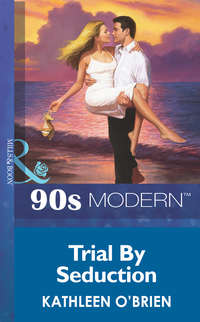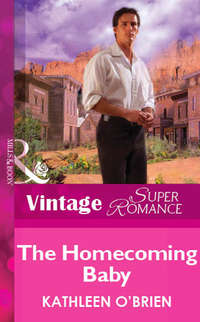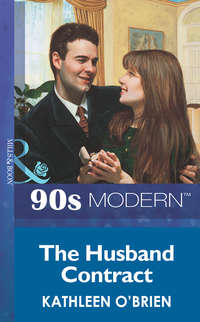
Полная версия
The Sinner
He wondered what that was all about. When he’d last been in Heyday, the college had been thriving, really making a name for itself.
He poked around a little, getting oriented. By the time he reached the office of Dilday Merle, chairman of academic affairs at Moresville College, for their ten o’clock meeting, he was five minutes late. But since he wasn’t sure what the hell this meeting was all about, anyway, he wasn’t terribly worried.
So, 301…that was the corner office, four big windows with great views. Bryce whistled under his breath. So Dilday Merle had finally made good, huh? Bryce was glad to see it.
Fifteen years ago, Dilday Merle had been the Algebra II teacher at Heyday High. On his next-to-the-last visit home, Bryce, who had fooled around and flunked Algebra II at his own school in Chicago, had ended up attending summer school in Heyday. He’d been assigned to Dilday Merle’s class.
The guy had been geeky and ancient even then. Bryce had thought he was a total loser. And he couldn’t believe that the slow-witted Heyday kids hadn’t already seen the entertaining possibilities for making fun of Dilday’s name. Bryce and the dorky teacher had locked horns early, but to his surprise, Dilday Merle had won the battle. Bryce had never stopped being cocky and obnoxious, but he had damn sure learned algebra.
They shook hands now with warmth that was, on Bryce’s side at least, quite sincere.
“Bryce McClintock. It’s been a long time.”
“Yes. It has.”
The pleasantries didn’t last long. Dilday looked scatty, with thick black glasses overhung by shaggy, unkempt eyebrows and Albert Einstein hair, but he was mentally as sharp as a shark’s tooth.
“All right,” Dilday said. “Let’s get down to it. You know I want something, or I wouldn’t have asked you to come over. Maybe you already know what it is?”
Bryce lifted one brow. “Money? I’ve just been here a week, but so far that seems to be the odds-on favorite.”
Dilday laughed. “Oh, no. Money’s not my department. Our president, Dr. Quentin Steif, he’s the official back-slapper and fund-raiser. I’m sure he’ll be calling you before long. No, my area is academics. I am hoping I can talk you into teaching a criminology class.”
Well, that did cut to the chase. Dilday had always known how to keep students awake and edgy. Bryce could feel his curiosity pricking. He sat up a little straighter. “You’re kidding.”
“No. I don’t have time to kid. One of my criminology teachers quit last week, no notice, along with one of my special ed people and two British Lit professors.” His eyes twinkled behind his glasses. “You’re not by any chance a big fan of Beowulf, are you? I’d gladly put you to work in the English department, too.”
Bryce smiled. “No one is a fan of Beowulf, Professor Merle.”
“Oh, for heaven’s sake, Bryce. Call me Dilday. Or whatever version of the name you prefer these days. As I recall, you had several pretty good ones.”
Bryce shook his head. “Sorry about that,” he said. “I was seventeen. I was an ass.”
Dilday grinned. “Yes, you were.” He held out a slim file folder. “Here, this is the syllabus our last teacher used. You could adapt it to suit yourself, or you can work straight from his plans. It doesn’t matter to me. You’ve got the credentials, and we need a teacher. We don’t pay squat to adjuncts, but you don’t care about that, anyway.”
Bryce took the folder but didn’t open it. “Hold on. I haven’t said I’ll do it.”
Dilday didn’t look fazed. He just smiled, toying with his letter opener, the same letter opener he’d always used. Its handle was carved in the shape of a zebra. In Heyday everything was zebra-this and zebra-that. It was one of the cutesy affectations Bryce had despised most about this Podunk town. So why did the sight of this particular letter opener suddenly make him feel a little nostalgic?
“In fact,” Bryce went on, steeling himself to resist all appeals to the past, both overt and covert, “a list of the reasons why I can’t do it—not to mention the reasons why I wouldn’t want to—would stretch out from here to D.C.”
“I know,” Dilday said patiently. “But you’ll do it, anyway, because you’re a nice boy. You always were.”
“Really? I thought we just agreed I was an ass.”
Dilday shrugged. “Ass is attitude. Ass is window-dressing. Ass is, at heart, simply fear in fancy clothes.”
Bryce paused a moment, his nostalgic goodwill toward this old man diminishing. “I thought you taught algebra, not psychology.”
“Oh, forget about me. And let’s, just for the moment, forget about you at seventeen, too. All that stuff is irrelevant now. I’ve got a crisis on my hands, Bryce. I take it you haven’t heard about what happened here a couple of years ago?”
“No. I haven’t.”
“I thought someone might have told you, since that journalist Tyler Balfour turned out to be your brother. But then—I guess communication between you and Kieran has been pretty spotty.”
“You might call it that.” Bryce shrugged. “So how about if you tell me? What the hell does Tyler Balfour have to do with anything?”
“He damn near destroyed this college with his muck-raking, that’s what.” Dilday took off his glasses and started cleaning them on his tie.
The gesture took Bryce back fifteen years in one split second. He could almost smell the chalk dust and the cheap perfume of the cheerleader who had sat next to him in Algebra. He had almost had sex with her under the football bleachers one night, but she had chickened out at the last minute.
“No, let me rephrase that,” Dilday said carefully, arranging his glasses on his nose again. “He didn’t nearly destroy us. We did that to ourselves. Balfour is an investigative reporter for a paper in Washington, D.C. But you can’t kill the messenger, can you? What happened to us was our own fault. We had a problem here, and he came to town and found it. Then he went home and published a big exposé and—”
“Hang on,” Bryce said. “When you say you had ‘a problem’ here, what exactly does that mean?”
“It means—” Dilday sighed. “Well, there’s no way to sugarcoat it. Some of our female students had formed a call-girl ring, and—”
“My God. I remember that.” Actually, Bryce had thought it was hilarious at the time. Rich sorority girls turning tricks in pokey little Heyday for mall money. He had read the first of the series, but then he got caught up in a trial and missed the rest. He’d meant to go back and read it all, but in the end he hadn’t cared enough. Heyday was boring. Even underage prostitution and local politicos caught with their pants down couldn’t make it interesting.
And he certainly hadn’t remembered the reporter’s name. He would never have put it together with the Tyler Balfour who had turned up out of the blue in old Anderson McClintock’s will.
“Still…how did that become a big problem for the college? Surely a little bad publicity, a few rotten apples—”
Dilday shook his head. “You underestimate how sensitive these things are. College campuses are supposed to be like protected bubbles, where parents send their children to make a safe transition to adulthood. Whether it’s realistic or not, we have an obligation to provide a secure environment. When word got out that their daughters were getting involved in things like that…”
Bryce was finally catching on. “They began to pull them out.”
Dilday nodded. “Seventy-five the week the series was published. It tapered off after that, and some came back, but we’re still down a net total of eighty students. In a small campus like ours, that’s a lot.”
“But what does this have to do with me? Surely I can’t be held responsible for the sins of my brother. Half brother. Especially one I didn’t even know existed until about ten months ago.”
“It’s not a question of responsibility. I need you, that’s all. I need someone with credentials, which, after a law degree and eight years in the FBI, you’ve got in spades. I need someone who’s independently wealthy, who’s able to make do without a real salary. And most of all I need someone who has some panache, who might bring in a few extra students.”
“Panache?” Bryce crossed his ankle over his knee and lay the file folder on his lap. “That sounds like a euphemism for something. What?”
“You know what.” Dilday Merle gave him a straight look. “You are a celebrity right now, Bryce. You just shot somebody while you were defending a gorgeous actress, and you got knifed doing it. That’s exciting. They’re just kids. They’ll eat that stuff up with a spoon.”
Dilday’s main talent as a teacher had always been his down-to-earth clarity. And he was certainly being crystal clear right now. Bryce had to hand it to him—he wasn’t trying to do a smoke-and-mirrors dance about his motives.
“But it won’t work,” Bryce said. “Even if I wanted to teach your class, which I don’t, I won’t be in Heyday long enough. The term goes until, what, May? I wasn’t planning to stay here more than a month or two at most.”
“So stay longer. You own this place, or at least a third of it, right? Stick around a while. It won’t kill you. You’ll have plenty to do just straightening out your inheritance.”
Dilday was right, of course—wasn’t he always? In only a week, Bryce had discovered just how hopelessly tangled his ties were to Heyday. He had tenants and mortgagees, employees and sycophants and a couple of enemies. He even had someone trying to sue him over an illegal dumping that had supposedly fouled the soil twenty-five years ago when a dry cleaner had occupied one of his buildings.
Absently he opened the folder and scanned the contents. The absconding Dr. Douglas had put together a pretty good class, basic and easy to teach. All the major theories and paradigms were covered—subcultural, gender-based, social structure, social process, developmental, it was all there.
He remembered this stuff from school, and what he didn’t remember he could refresh easily. It looked so orderly, so pure and hopeful here on the page, all well-intentioned and academic. Nothing chaotic and bloody, unpredictable and heartbreaking. It might be a nice change of pace. It might help him remember why he’d gone into law in the first place.
And he would have something to bring to it. Something practical and concrete, based on his years of real-life work. It wasn’t just “panache.” It was experience.
He glanced up, wondering if Dilday could sense his weakening willpower.
“Just this one, Bryce,” the old man said. “I’m desperate. Classes start in three days. And it’s only a few months. It might be fun.”
Bryce looked up and smiled dryly. Who would have thought that Dilday Merle could, just for a minute, sound exactly like Lara Lynmore’s desperate lawyer?
“I give you my word of honor, I’ll be looking for someone to replace you,” Dilday said. “Please. Just until I can find somebody else.”
“You know,” Bryce said, wondering why he was such a bloody fool, but knowing he was going to say yes. “I’m pretty sure I’ve heard that line before.”
THREE DAYS LATER Bryce confronted his first classroom full of students. Thirty-eight of them. Dilday must be in heaven. Three days ago, there had been only twenty. But then the word went out that Bryce McClintock, notorious bad-ass and bodyguard to the stars, would be teaching it and, just as Dilday had predicted, enrollment had soared.
Bryce had expected the first day, at least, to be intimidating, but they looked like nice kids. Some of them weren’t even kids. At least two of the male students were in their late twenties, and that woman in the last row must be somebody’s grandmother. Bryce found himself curious. What were their stories? Why were they here? What were they hoping he could teach them?
The real surprise was that Ilsa, Kieran’s housekeeper, was one of his students, too. She had come up to him just before class and confided in her husky, accented whisper that Kieran had encouraged her to go back to school, so here she was.
Bryce had been friendly but carefully distant. It was actually kind of scary, when you thought about the number of ways in which beautiful Swedish coeds with ulterior motives could easily spell trouble for a young professor who was her boss’s brother.
Maybe he was being unfair. Maybe busty, beautiful Ilsa was a dedicated scholar. But somehow he doubted it.
The first half of the class had gone well. The kids seemed to hang on his every word. Only one boy had found the nerve to mention Lara Lynmore or Kenny Boggs.
“Mr. McClintock,” the kid said eagerly. “You shot that stalker, and you aren’t even like a professional bodyguard. That’s like, so awesome.”
“No, Mr.…” Bryce had scanned his roll sheet calmly. He’d known this question was coming, sooner or later. Maybe it was just as well to get it over with. “Mr. Winston. No, it wasn’t so awesome. It would have been awesome if I’d been able to protect my client without having to resort to killing anyone.”
“But—”
“No buts. Shooting is always a last resort. Always. That’s true for police officers, bodyguards, anyone. If you’re good at your job, you find ways to solve your problems without resorting to violence.”
The kid had subsided, smart enough to know he’d been chastised. But Bryce saw that young Mr. Winston’s bright eyes continued to follow him with an unmistakable hero-worship. How dumb could you get? This same excited teenager probably would have wet himself after one look at Kenny Boggs’s wound.
God. Kids.
He had decided to break the ice with a classic observation-training exercise. He had asked the students to look out the window for five minutes and mentally note as many details as possible about what they saw. People, scenery, cars, weather, whatever.
It was raining, which made the exercise more difficult, more gray and confusing. Most of the passers-by were bundled up in shapeless, hooded raincoats, and dashed through the quadrangle quickly, rushing for cover.
In about two minutes, by prior arrangement, Dilday Merle would come by, stop right outside Bryce’s window and stage an argument with a student. Afterward, Bryce would ask his class to reconstruct what they’d seen. If it went according to plan, no two students would remember the argument exactly the same way.
Which was, of course, the point of the exercise. From that moment on these students would be a little more cynical, a little more observant. They wouldn’t automatically trust eyewitnesses. They wouldn’t take anything for granted, which might someday save someone’s life.
He watched with them, leaning back in his chair, tapping his pencil against his desk, waiting for Dilday to come out. He was sorry, for Dilday’s sake, that it was raining. Cold January rain in Heyday, Bryce had discovered on the way to school this morning, felt like tiny silver needles pricking every exposed inch of your skin.
But Dilday owed him big-time. A little soggy chill wouldn’t begin to pay the debt.
Some of the kids were already getting restless. Bryce made a mental note of their names. If they didn’t settle down, they’d never make good lawyers or even law enforcement officers. Short attention spans couldn’t make it through stakeouts or endless hours of boring depositions. Heck, they’d never even make it through the dusty tomes of the law library, which were the most stultifying books ever published.
Suddenly a young woman appeared on the far side of the courtyard, walking toward them through the rain. Bryce looked once—then looked again.
Slowly, he let his pencil fall to the desk. She wore the standard college student uniform—blue jeans and down-lined jacket with the hood pulled up to keep out the cold and the rain. She held an armload of books to her chest, as if trying to keep them dry.
She could have been anybody.
But he knew that walk, trained from childhood to sashay subtly, putting one foot elegantly and directly in front of the other. Head held high, from years of balancing a book there, or a beauty pageant crown. And of course he’d know those long legs anywhere. His hips burned suddenly, as his body recalled exactly how those legs had felt, wrapped around him as they wrangled on the sofa, just seconds away from the consummation they both craved.
He stood up, as much to ease the pressure as anything. He didn’t need a closer look—he already knew. That wasn’t anybody. That was Lara Lynmore.
The only question was—what the hell was she doing here?
He moved to the window. But just as Dilday Merle and his hapless student appeared and launched into their carefully scripted argument, the rain began to fall in earnest. Now half obscured by Dilday, the young woman bent her head to her books and began to jog along the shining silver sidewalk.
The students watched Dilday Merle, but Bryce watched the woman. He saw the hood fall back, exposing dark, nut-brown hair that wasn’t quite what he’d expected. He moved closer still, trying to see through the streaks of rain and thrashing branches.
But it was too late. She made a sudden turn and darted into the science building. Damn it. He looked toward his classroom door, wondering if he could make it across the quadrangle in time to catch her.
The timer on his watch beeped. The official five minutes of observation were up. Thirty-eight faces turned expectantly toward him.
It took him a couple of seconds to remember what they wanted. Oh, hell, that’s right. He was the teacher here. For the next ninety minutes, he couldn’t leave this classroom for anything. Not even to chase the wet, long-legged mirage who would might well turn out to be an annoyed eighteen-year-old total stranger majoring in elementary ed.
“So,” he said, collecting himself just in time. “Tell me what you saw.”
The students began to call out details. Trees, leaves, rain, a kid streaking through muddy puddles on his skate-board, obviously late for class. Someone had seen a cat, though the others booed that report, insisting he was nuts.
Thirteen cars—no, ten—no, eleven cars and three trucks. And, of course, Dilday Merle lecturing some poor boy—no, it was a girl—no, another teacher.
“Did any of you see a woman?” It was stupid, but he had to ask. Surely, if the famous Lara Lynmore really had just loped across the Moresville College quadrangle, someone would have noticed that.
Thirty-eight blank faces stared at him. “You mean the woman Dean Merle was chewing out?”
“No, that was a boy,” another kid insisted. “I know him. He’s in my psych class.”
“It was a girl,” a boy with spiky brown hair said. “She was hot.”
“God,” another student, this one a female, said scornfully, “You’re such a sketch, Matt. It was a boy.”
“I don’t mean the person with Dean Merle,” Bryce amended carefully. “I’m talking about another woman. Running down the sidewalk behind them.”
Several heads shook. Several students frowned, determined to remember, determined not to fail on this, their very first day.
“No.” Ilsa, her hands folded in front of her, the perfect student, looked at him seriously. “I didn’t see a woman. What kind of woman? A teacher?”
No, damn it. Young. Sexy. A movie star. A woman with dangerous legs and an angel’s face. But he couldn’t say that. With all the sexual harassment rules these days, he couldn’t even say it had been a very pretty woman, or they might think he was a weirdo. They’d think he was a “sketch.”
And besides, maybe he’d better shut up.
If he had begun hallucinating, if he was going to start seeing visions of Lara Lynmore every time he turned around, he’d probably better keep that little piece of insanity to himself.
CHAPTER FOUR
THE HIPPODROME SUPERMARKET on the outskirts of Heyday wasn’t exactly five-star shopping, but it was open all night, so Bryce made the trip. A disturbingly skinny spaniel had been hanging outside the kitchen door of the fraternity house for the past three days. Its whining was so pitiful Bryce realized he was going to have to feed the mutt. Otherwise, the ghostly frat-boy might end up with a spectral pet.
Bryce hated grocery shopping. Still, if he had to do it, eleven at night was the most desirable time. The brightly lit, cavernous place, which had been total chaos the last time he ventured in, was almost empty.
Half a dozen people, tops. A nurse taking home a frozen dinner after the late shift, a harried father buying diapers, a couple of kids from the college with a cart full of Twinkies and Bud Light, and one red-nosed old guy who was paying for his wine with dimes.
Bryce slung a huge bag of lamb-and-rice nuggets—how horrible did that sound?—into his cart. Then, remembering he was out of coffee, he decided he might as well spare himself a second trip.
Thankfully, his list was short. He hadn’t had the nerve yet to try out the frat house oven, which had about two inches of extremely suspicious black crust under the rack. He would hire a housekeeper eventually, now that he knew he was stuck in Heyday for a couple of months. Till then, he’d just eat out.
Still, he needed to keep the bare minimum on hand. Bread, coffee, beer, an apple or two…
The produce section, which was right next to the beer cooler, was comparatively busy. Two college boys were making a show of suggestively squeezing cantaloupes and alternately moaning and giggling.
Bryce couldn’t help smiling. Morons. If you added both their IQs together, the cantaloupe would still out-score them.
Predictably, they started flirting with a young woman who stood nearby, studying the bananas, a basket filled with fresh spinach and mushrooms hooked over her arm.
“Hi,” one of the boys said, sidling up to her. “Let me tell you about bananas. See, you want to get yourself a nice, firm one. And take my word for it. Bigger is definitely better.”
The boy shot a gleeful look back at his friend, still immature enough to be more interested in scoring joke points with his buddy than anything else. “Yeah,” he went on, delighted with his own brilliance, “these little stubby ones aren’t very satisfying.” He wiggled his eyebrows. “If you know what I mean.”
The young woman’s hands gripped the banana so tightly Bryce was surprised it didn’t pop. He figured that any minute she’d turn and shove the whole thing down that idiot’s throat. Bryce took his time picking out a tomato. He’d enjoy watching that.
But she didn’t do it. Though the punk was waiting for a reaction, the woman just stood there, her hands frozen on the bananas.
Without speaking, she edged farther down the counter. She turned her head away, exposing the graceful, pale nape of her neck between her hairline and her jacket.
Something moved inside Bryce, some primitive awareness that was way ahead of his conscious mind. He knew that neck. He knew that woman.
It was Lara.
Though it was as preposterous as ever, he wasn’t really shocked. It was as if he’d been half expecting this for days, ever since that first class, when he’d looked out the window and hallucinated a vision of her.
Idiot kid. If the boy knew he was making a pass at Lara Lynmore, movie star, he’d probably faint headfirst into the avocados. She could have destroyed him with one look. But she clearly didn’t have the confidence to do that anymore. And why should she? She’d spent ten months stalked by a madman who had probably seemed, at first, to be as goofy and innocent as this kid.
Bryce walked up and put his hand on the boy’s shoulder.
“Hey, pal,” he said politely. “Do something for me, would you?”
“Huh?” The kid looked up, too surprised to be hostile. “What?”
Bryce gave him a cold smile. “Shove off.”
Before the kid could react, Bryce picked up the greenest banana on the display. “And take your banana with you. It won’t be ripe for years yet.” He picked up the kid’s slack arm and slapped the banana into his hand. He raised one brow. “If you know what I mean.”
The kid’s friend snickered—he got it, anyhow. And the dark flush creeping over the banana-boy’s smooth cheeks said he got it, too.









